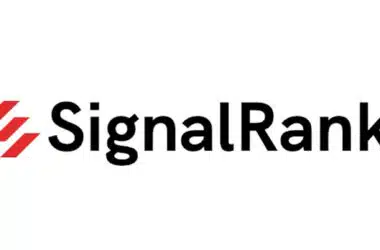Table of Contents
Prediction and Trends for Fintech in 2021 and Beyond
In some of the earlier articles, we have discussed the rise of fintech in detail. So if you have not read through them, then it is highly recommended to go through some of the earlier articles. If however you already know what fintech is and why it is changing the face of society as we know it, then you can continue reading.
This article is going to look at the current trends and predictions about the fintech industry, which is moving at a very rapid pace. The transformations that are occurring in society because of the ongoing fintech revolution are changing our lives faster than we could have imagined.
Fintech has already taken over a lot of our daily activities. ATMs for instance, are an example of early fintech solutions to make access to funds more convenient. We use ATMs today without thinking twice about their impact on our lives. ATMs look like a thing of the past, now that we have got digital wallets, virtual cards instead of the old plastic cards. Now you don’t need to carry a card with you if you have got a virtual card powered by Visa or Mastercard.
So what is next for fintech?
Digital Banks | Prediction and Trends for Fintech in 2021 and Beyond
When we mention the word bank, the image of a corporate building comes to mind, with managers talking on phones, cashiers and clerks busy in stamping. The sound of papers being printed turned over and currency notes being counted and an occasional chink of a penny drop.
The mention of the word bank also makes many people uneasy because of countless hours wasted, trying to make the managers and assistants understand what we want. Banks have been notorious in the past for pitching products, shoving them down the client’s throat. Some banks have terrible customer service, where they hang you up forever before addressing your issues.
Well, all of this is changing and it is changing fast. Conventional banks in 2020 have been challenged by the rise of digital-only banks. These are banks that have no brick and mortar presence. There is no branch that you have to walk into.
With digital banks, you simply have to log on to their website and open your account. All of the issues are handled either online or on call. Digital banks have got an edge over conventional banks that allows them to be better.
Firstly, since the digital banks do not have any network of branches, their administration cost is extremely low as compared to any conventional brick and mortar bank. This low cost allows them to invest more in customer service, it also allows them to offer better rates than conventional banks. This is why every digital-only bank, right now, is offering better rates on savings accounts and better features on cards as compared to conventional banks.
Digital-only banks are also the perfect way to bank amidst the ongoing pandemic. You no longer have to worry about visiting your bank branch for any reason, your bank is always only a call or a swipe on your phone away from you.
Seeing the meteoric rise of digital-only banks, many conventional banks are now also trying to offer similar services but they are not yet able to compete on rates. 2021 and the coming years are going to see an increase in digital-only banks.
Therefore if you use banking services, then keep an eye out on the new digital banks. You may soon be migrating from your conventional bank to a digital-only bank.
Robotic Process Automation | Prediction and Trends for Fintech in 2021 and Beyond
Automation is a very important trend that is sweeping through almost every industry right now. There is an ongoing debate about the effect on jobs but the honest truth is that regardless of the debate and concerns, automation will become a norm. Why? Because it can help businesses save costs and thus focus on better value creation.
Yes, this means there will be unemployment and many job roles will change, but this is where governments and big corporations can come together in public-private partnerships to upgrade or shift the skills of the current labour force, to prevent a massive spike in unemployment levels.
Robotic process automation (RPA) allows businesses to delegate repetitive and mundane tasks to robots. Leaving the skilled workers to focus on value creation. You may have come across robo advisors, where algorithms have been programmed to answer your questions and make suggestions.
Robo advisors started out as an experiment to help young students seeking entry into colleges. The earliest robo advisors would take the data from students and then suggest colleges that match their criteria.
Soon, this technology was taken up by the finance sector and robo advisors starting advising investment strategies. Using chatbots and robo advisors, not only allows businesses to save up costs but also helps with customer engagement and retention. It has been noted that businesses that use robo advisors ended up with better customer engagement and return rates as compared to businesses that used human advisors.
While robo advisors are at the frontend, many businesses have also employed RPA at the backend to take care of the data entry and bookkeeping functions, thus allowing the finance departments to focus on more complex issues.
With time, RPA is going to become mainstream. You will see startups with very few workers and automated tasks. Yes this may sound scary and it is but from the point of view of any business, automation is the way because it not only saves costs but eliminates fraud and embezzlement, inefficiency and other issues that arise with having human workers.
We know that corporations and businesses don’t often go for the ethical option. They go for the profit and efficiency maximising option. The ethical debate on automation is real and it should go on but looking at our past record, automation is going to be the main trend this year and in the coming years.
Financial Inclusion | Prediction and Trends for Fintech in 2021 and Beyond
Banking the unbanked is a major theme that the financial institutions are pushing for. According to the World Bank, almost 1.7 billion people are unbanked. It is one of the common goals of all the governments and other stakeholders to make sure that every individual on this earth has access to banking services. Why? Because the future that we are collectively building is going to rely a great deal on the finance sector.
While there may not be a lot of unbanked individuals in the developed world, the developing world is a different story. There are many people especially in Asia, Africa and South America that are unbanked.
If we are to have a universal basic income, health services and other fundamental rights in every country then banking the unbanked is going to be crucial. For example, when most of the countries went into lockdown in 2020, a major issue for the developing countries was how to provide food and other essential services to those who are not banked, those living below the poverty line in countries like India, Bangladesh, Pakistan, Afghanistan, Nigeria and Somalia just to name a few.
Leaders from these countries made appeals to the World Bank and IMF to defer their loan payments, to make special concessions and send aid because these countries simply could not afford to shut their economies down like the USA, Europe, New Zealand or Australia.
Many countries like Pakistan and India went into lockdown to prevent massive breakouts of the virus and they realized that it was simply not possible to send checks to the most deserving people, as they were so poor that they had no bank account.
It is for this reason, that financial inclusion is the main theme for institutions like the World Bank and IMF. Fintech has the potential to increase the rate of financial inclusion. So there is definitely going to be an increase in funding directed towards startups that focus on banking the unbanked.
Apart from these trends, blockchain is going to be a constant theme. We have discussed blockchain in the past and it did not feel necessary to make a separate category for blockchain because it is going to be the system or protocol upon which the future financial products and services are going to be based.
As mentioned above, the transformation in the fintech industry is happening very rapidly. If you are either a client or an entrepreneur looking for the next big idea, look into the future trends for the fintech industry because there is where you are going to find gold.
















Recent Comments